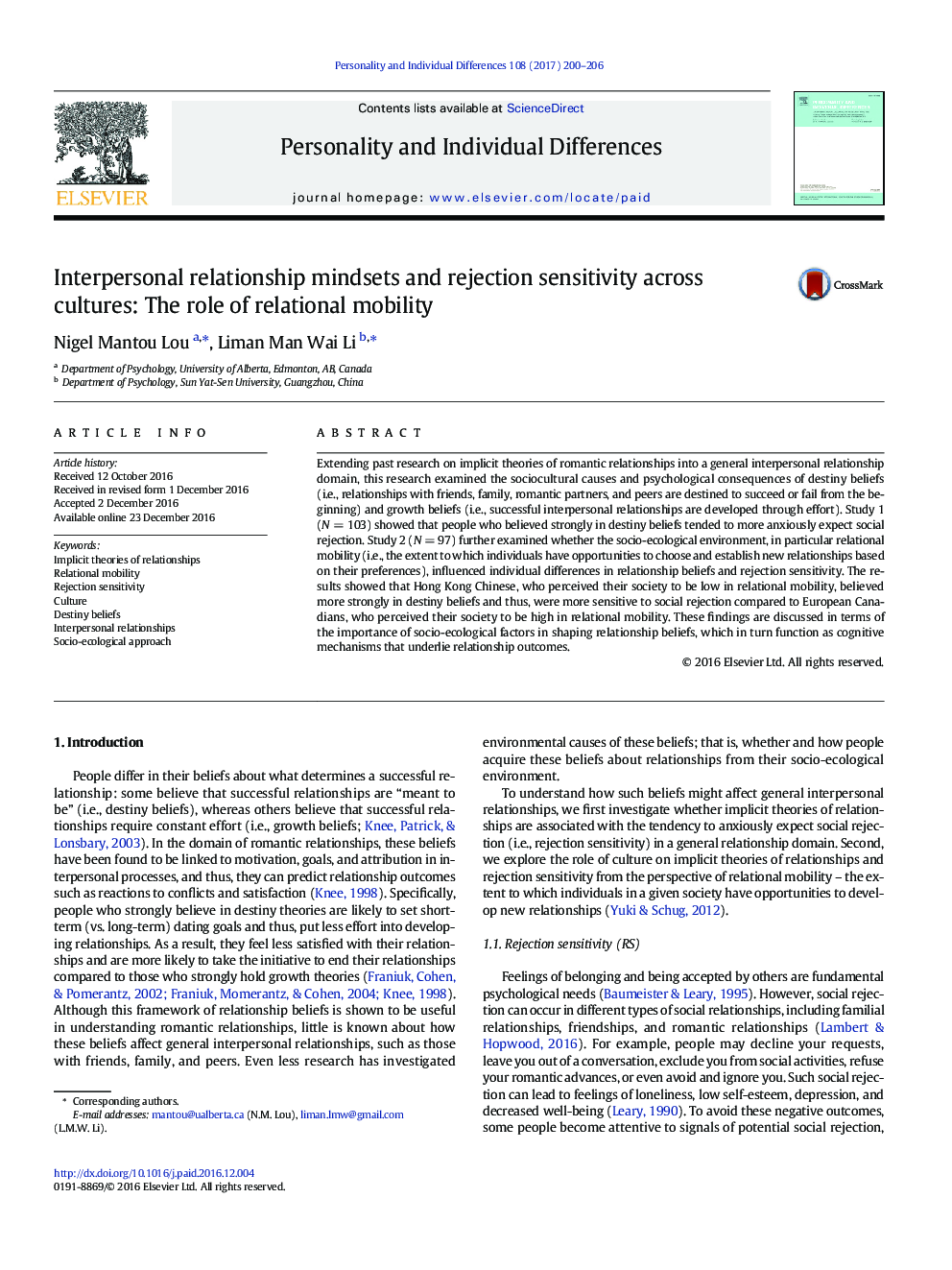| کد مقاله | کد نشریه | سال انتشار | مقاله انگلیسی | نسخه تمام متن |
|---|---|---|---|---|
| 5036110 | 1472010 | 2017 | 7 صفحه PDF | دانلود رایگان |
- This study extends the Implicit Theories Model into a general relationship domain.
- Destiny beliefs, but not growth beliefs, predict rejection sensitivity.
- Chinese hold stronger destiny beliefs, while Canadians hold stronger growth beliefs.
- Destiny beliefs explain why Chinese are more sensitive to social rejection.
- Relational mobility explains cultural differences in destiny beliefs and rejection sensitivity.
Extending past research on implicit theories of romantic relationships into a general interpersonal relationship domain, this research examined the sociocultural causes and psychological consequences of destiny beliefs (i.e., relationships with friends, family, romantic partners, and peers are destined to succeed or fail from the beginning) and growth beliefs (i.e., successful interpersonal relationships are developed through effort). Study 1 (NÂ =Â 103) showed that people who believed strongly in destiny beliefs tended to more anxiously expect social rejection. Study 2 (NÂ =Â 97) further examined whether the socio-ecological environment, in particular relational mobility (i.e., the extent to which individuals have opportunities to choose and establish new relationships based on their preferences), influenced individual differences in relationship beliefs and rejection sensitivity. The results showed that Hong Kong Chinese, who perceived their society to be low in relational mobility, believed more strongly in destiny beliefs and thus, were more sensitive to social rejection compared to European Canadians, who perceived their society to be high in relational mobility. These findings are discussed in terms of the importance of socio-ecological factors in shaping relationship beliefs, which in turn function as cognitive mechanisms that underlie relationship outcomes.
Journal: Personality and Individual Differences - Volume 108, 1 April 2017, Pages 200-206
